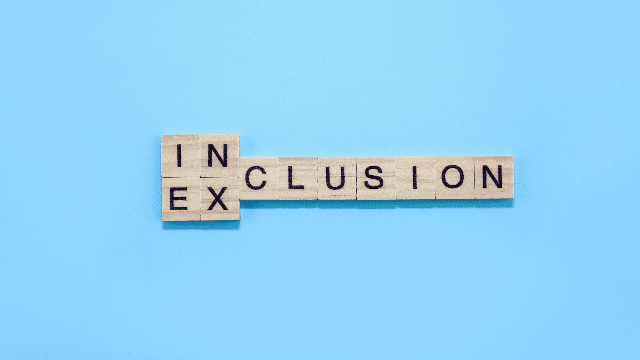Reflets Magazine #145 | Implementing Deliberate Inclusion to Avoid Accidental Exclusion
In Reflets Mag #145, Vanessa Barros (E93), co-founder of training and consulting firm LeadershipCQ, explains why ensuring diversity in recruitment is not enough to guarantee the inclusion of all talents in a business. She believes management must exercise cultural intelligence in order to take into account the specificities of each employee and allow them to flourish. You have free access to the article here… subscribe to read the upcoming editions!
Companies have difficulty agreeing on the term ‘diversity’. When I discuss this with the members of various organisations, the most commonplace view involves at least gender and ethnic origin. Senior managers openly speak of the pressure they are under to ensure better gender diversity and the need to have people of more diverse ethnic origins in management roles.
Diversity in a broad sense
When the spectrum of diversity broadens, it also encompasses gender and sexual preference. Neuro-diversity and disability generally come last on the list. Other forms of difference, whether visible or acquired, such as family or social status, are often not even mentioned. We must perceive the full spectrum of diversity in order to include all possible individual differences.
Building diversity through inclusion
Diversity is those different people who are invited to sit at the table, and inclusion is providing them with every opportunity to enjoy the meal and contribute to the conversation.
Inclusion is the ability to free the potential of this diversity by allowing all team members to belong, contribute, grow and flourish with equal opportunity.
Through a lack of inclusion, employees conceal their true identities, lose their motivation, sense of cooperation and well-being, and may suffer from depression. The performance of the company is heavily impacted. Including and implementing mental security for all is a must.
Moving from diversity to inclusion through cultural intelligence
The skill which allows us to go from diversity to inclusion is that of cultural intelligence (also known as ‘cultural quotient’ or CQ). This soft skill enables managers to detect differences, manage them appropriately and eventually create a third culture in which all differences can flourish in harmony.
The main hurdle to inclusion is that as humans, we were programmed thousands of years ago to survive, and that makes us fearful of difference. It is a question of fight or flight, of making rapid decisions to determine if there is a danger or not. We do not learn that a tree is a tree by listing the various species of trees. We learn by simplifying; a trunk, branches and leaves. That is why we have a natural tendency to stereotype and judge. That is why we so easily exclude by accident. We like to believe that our norm is THE norm.
Fortunately, we can train our ‘experiential’ brain by adopting strategies to help us slow down, avoid making hasty and false conclusions and protect ourselves from reacting strongly to the things we do not like. It is a journey towards a less critical view of the world, to a candid and unbiased perspective. It is a journey where curiosity prevails and where nothing can be taken for granted. To avoid accidental exclusion, we must exercise deliberate inclusion.
The fundamental role of leaders
The leaders with whom I work express their concerns regarding the pressure for diversity within their organisation and the lack of preparation to manage this diversity. Some also speak of their fear that, due to what they call their ‘majority’ profile, regardless of what they say, they will be castigated for misunderstanding, judgement or partiality. They do not feel legitimate.
Of course you are legitimate! Whether you are a man, a woman or non-gendered, if you are the leader, that is where your responsibility lies! Research shows that without the involvement and engagement of CEOs, training and other efforts in D&I are ineffective. Your engagement is already a step towards inclusion. Taking advantage of the collective intelligence of your organisation helps to boost performance and innovation. Ignoring the evolution of our society eventually takes its toll on companies and brands.
Authenticity above all
Be wary of those who use D&I as a marketing strategy. Future generations are unrelenting towards the lack of authenticity on the part of companies and their leaders. A cosmetic brand which withdraws its whitening products the day after George Floyd’s death will come in for much criticism.
It is imperative to practice in-company what you preach outside of the company. Firms such as Sephora, Richemont or Schneider place D&I at the heart of their strategy and make it a cornerstone of their performance. They foster inclusion thanks to clear KPIs, and constantly assess the level of diversity and inclusion within their teams.
A sensitive subject which calls for empathy
Whether it is a debate around secularism and religion, gender issues, the appropriateness of adding a disability to the list of differences, or the relevance of destroying statues, opinions diverge and often oppose each other. To the extent that we sometimes lose sight of the most important factor, the ‘mental security’ of being able to think, express ourselves and behave differently. Accepting difference is essential in the exchange of ideas.
We all have different experiences which may help the notion of inclusion to come more easily to us than others. Some of us were raised in a highly-diverse environment. Others not at all. We are all at different stages and progress at varying paces. Mental security is a key element of success. Any dogmatic approach may result in censorship and exclusion. Empathy and collaboration are essential.
Translation of an article published in Reflets Magazine #145. Click here to get a complimentary access to the issue (in French). Subscribe here to get the next issues (in French).
Image : © AdobeStock

Comments0
Please log in to see or add a comment
Suggested Articles



